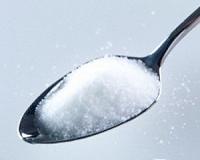| . |  |
. |
Budapest (AFP) Dec 21, 2010 A leading French environmental group warned Tuesday that October's toxic mud spill in Hungary could cause long-term damage and called for a broad European effort to monitor its effects. "We are concerned for the mid- and long-term," Charlotte Nithart, the director of the Robin des Bois (Robin Hood) environmental group, told AFP as it released a new report on the spill. She warned against "turning the page" on the ecological disaster, which occurred when a holding reservoir at an alumina plant, some 160 kilometres (100 miles) west of Budapest, burst its walls on October 4. The crack sent more than 700,000 cubic metres of toxic red mud spilling across an area of 40 square kilometres (15.4 square miles), polluting the Danube River and its tributaries and causing an ecological disaster. Nithart said pollutants would continue to spread in the region. "The dry summer will see the peak period for dust, while in the winter the humidity encourages pollutants to spread," she said. The group has sent its 45-page report to the Hungarian government and the European Commission, she said, in the hopes of highlighting the need for better monitoring of toxic mud reservoirs throughout Europe. The report said that two affected areas, the Torna and Marcal rivers, were far from clean despite clean-up efforts and that pollutants still present in fish from the Danube could have long-term effects on the local food chain. The group called for the monitoring of pollutants all along the Danube and said it hoped Hungary, which is taking over the rotating presidency of the European Union on January 1, would ensure a Europe-wide follow-up on the spill.
Share This Article With Planet Earth
Related Links Our Polluted World and Cleaning It Up
 The Sweetness of Biodegradable Plastics
The Sweetness of Biodegradable PlasticsNew York NY (SPX) Dec 20, 2010 Environmentalists around the world agree - plastic bags are choking our landfills and polluting our seas. Now a Tel Aviv University researcher is developing new laboratory methods using corn starch and sugar to help sustainable plastics - those that biodegrade and are even tougher than those made from petrochemicals - compete in the industry. The answer to the problem, Prof. Moshe Kol of T ... read more |
|
| The content herein, unless otherwise known to be public domain, are Copyright 1995-2010 - SpaceDaily. AFP and UPI Wire Stories are copyright Agence France-Presse and United Press International. ESA Portal Reports are copyright European Space Agency. All NASA sourced material is public domain. Additional copyrights may apply in whole or part to other bona fide parties. Advertising does not imply endorsement,agreement or approval of any opinions, statements or information provided by SpaceDaily on any Web page published or hosted by SpaceDaily. Privacy Statement |